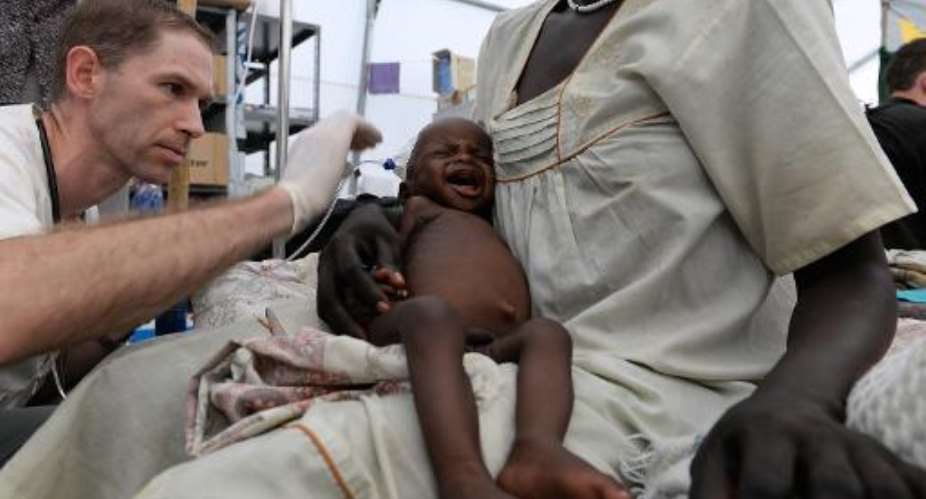Juba (AFP) - Authorities in war-torn South Sudan on Tuesday announced a ban on foreign workers, including staff with foreign aid agencies, and ordered they be replaced by locals.
There was no immediate explanation for the ban, which comes as the country is heavily dependent on foreign aid and expertise to tackle what aid agencies warn is a looming famine caused by nine months of civil war.
A government statement, published in several newspapers, ordered "all non-governmental organisations, private companies, banks, insurance companies, telecommunication companies, petroleum companies, hotels and lodges working in South Sudan (...) to notify all the aliens working with them in all the positions to cease working as from 15th October".
It said these positions should then be advertised so that they can be filled by "competent South Sudanese nationals", and listed roles ranging from receptionists to executive directors.
But South Sudan's Information Minister Michael Makuei told AFP the order only covered "jobs South Sudanese can do", suggesting the statement from the ministry of public service may have been misleading.
"It is not all foreigners, but for those employed in specific jobs," he said by telephone from Ethiopia, where he is taking part in peace negotiations.
Still, the minister confirmed that the positions should be filled "through the guidance of the ministry of public service," therefore giving the government control over who is appointed.
South Sudan is heavily dependent on a network of international aid groups for humanitarian assistance for more than a million people who have been internally displaced by the civil war.
The international NGO Global Witness, which campaigns to prevent natural resource-related conflict and corruption, said the order was "disturbing" and accused the government of "attempting to expel trained aid workers at a time of a grave humanitarian crisis".
"The decision demonstrates a total disregard for the lives of the 1.3 million citizens displaced by this oil-fuelled conflict," it said, adding that the government also "risks crippling the economy".
South Sudan suffers from a major shortage of skilled workers, with only around a quarter of the population being able to read and write.
Fighting broke out in the oil-rich country, the world's youngest nation, in December 2013 following a clash between troops loyal to President Salva Kiir and his former deputy Riek Machar.
The war spread rapidly across the country and has been marked by widespread human rights abuses and atrocities by both sides.





 Meta releases new version of conversational AI across its platforms
Meta releases new version of conversational AI across its platforms
 Cape Town named Africa’s Best Airport 2024 by Skytrax
Cape Town named Africa’s Best Airport 2024 by Skytrax
 Bono East: Four injured after hearse transporting corpse crashes into a truck
Bono East: Four injured after hearse transporting corpse crashes into a truck
 ‘Be courageous, find your voice to defend our democracy’ — Sam Jonah urges journ...
‘Be courageous, find your voice to defend our democracy’ — Sam Jonah urges journ...
 Exodus of doctors, nurses and teachers have worsened because of unserious Akufo-...
Exodus of doctors, nurses and teachers have worsened because of unserious Akufo-...
 2024 election: Avoid insults, cutting down people in search of power – National ...
2024 election: Avoid insults, cutting down people in search of power – National ...
 ‘You passed through the back door but congratulations’ — Atubiga on Prof Jane Na...
‘You passed through the back door but congratulations’ — Atubiga on Prof Jane Na...
 Government’s $21.1 billion added to the stock of public debt has been spent judi...
Government’s $21.1 billion added to the stock of public debt has been spent judi...
 Akufo-Addo will soon relocate Mahama’s Ridge Hospital to Kumasi for recommission...
Akufo-Addo will soon relocate Mahama’s Ridge Hospital to Kumasi for recommission...
 We must not compromise on our defence of national interest; this is the time to ...
We must not compromise on our defence of national interest; this is the time to ...
